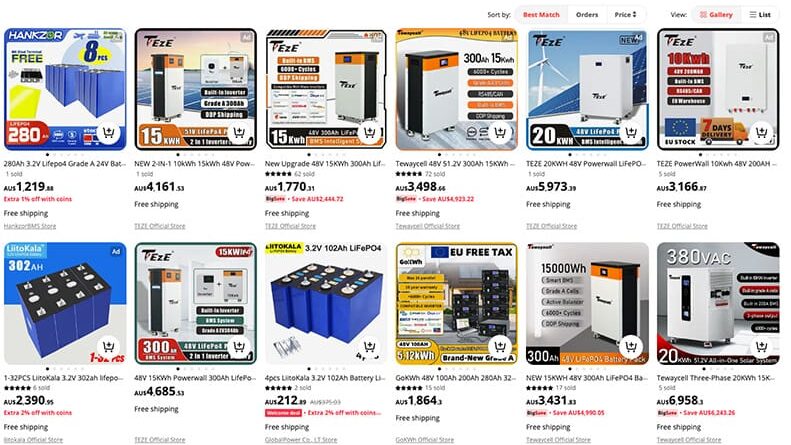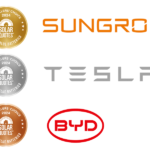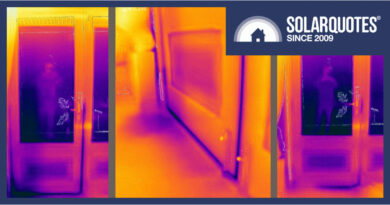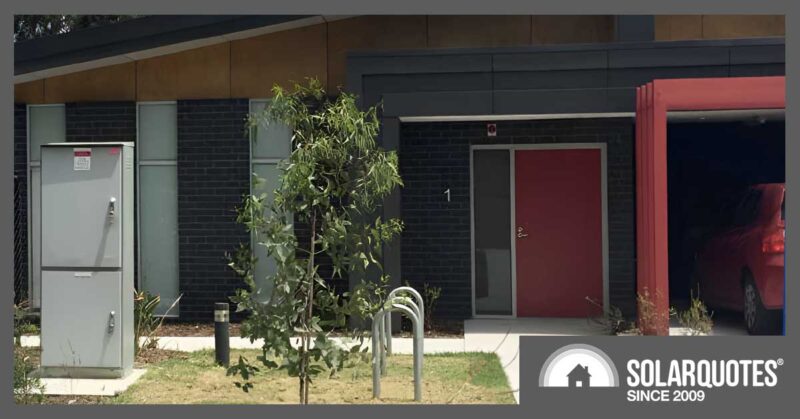Everything You Need To Know About Buying Batteries In Australia In 2024
Adding a battery to your solar home can reduce your bills and keep your lights on if there’s a blackout.
But choosing one for your home isn’t as simple as popping down to the shops and getting some AAs.
I recently released the 2024 edition of my plain English video guide to batteries. It has all the info you need to buy batteries with confidence.
If videos aren’t your cup of tea – here’s a summary:
What Do Batteries Cost?
Expect to pay about $10,000 before installation for a 10 kWh battery.
Name-brand batteries, like Tesla’s Powerwall, will naturally cost more than some no-name batteries out of China, kWh for kWh.
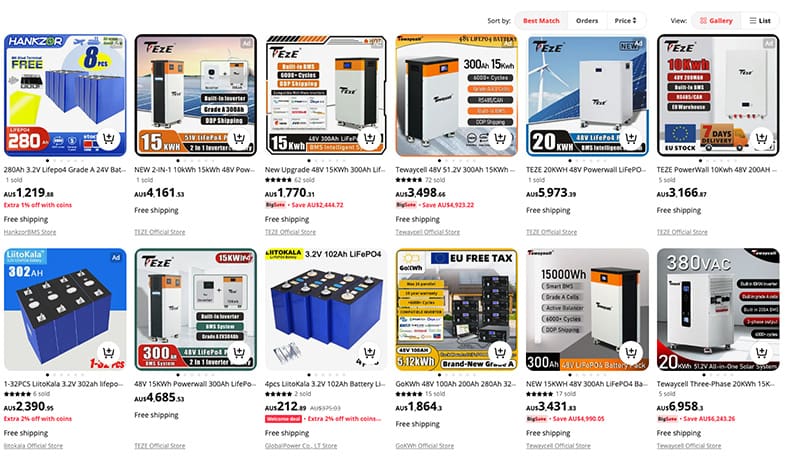
My advice? Don’t buy a battery from AliExpress!
Straight-forward installs will set you back about $1,500. If you have a tricky install, with long cable runs or extra components (like bollards) needed, this will be closer to $3,000.
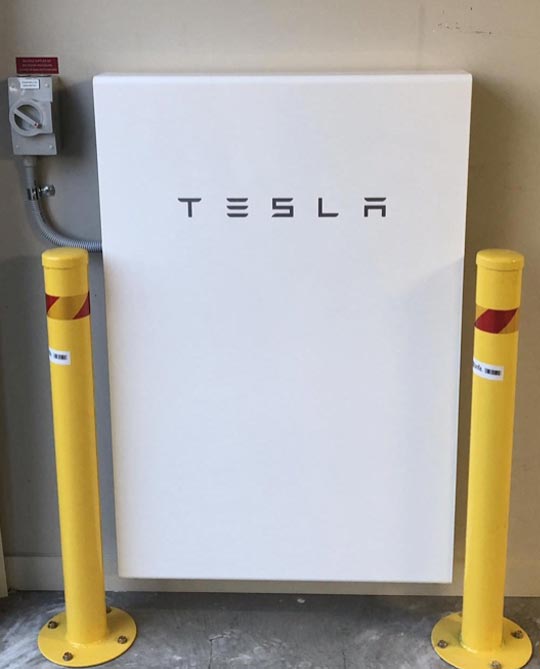
I’ve got a table where you can compare all the major battery brands available in Australia, including their pricing.
What brands can you trust?
Our battery comparison (linked above) has heaps of batteries. Which ones would I recommend to my mum?
Any of these:
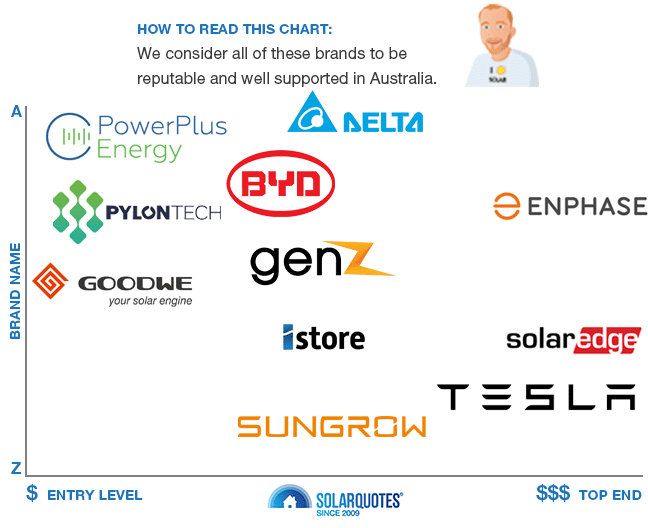
Personally, I own a Tesla Powerwall and a Sungrow home battery. The Powerwall is on my family home and is connected to the Tesla VPP, and cycles more than once per day. I get a modest monthly bill from Tesla for my all electric house and 2 EVs. The Sungrow (on a rental unit) is on a regular AGL tariff and has never seen a positive electricity bill.
How Long Do Batteries Take To Pay For Themselves?
My solar and battery calculator can crunch the numbers for your situation.
But generally, payback is lame on a flat electricity tariff but can be attractive on a time-of-use tariff:

Best-case payback scenarios assume you’ll fully charge your battery from solar during the day and fully discharge it during peak grid pricing periods (for maximum savings) every day of the year.
Are There Any Battery Rebates?
Sadly, unlike for solar, there is no federal battery rebate.
If you’re in the NT, you can get up to $5000 from the territory government.
While not rebates, Victoria and the ACT have interest-free loans to take the sting out of dropping thousands upfront.
Certain Virtual Power Plants (VPPs) offer up-front discounts if you buy a battery directly from them or bring your own.
Batteries and Backup
Most people believe having a battery means their house is backed up in a blackout.
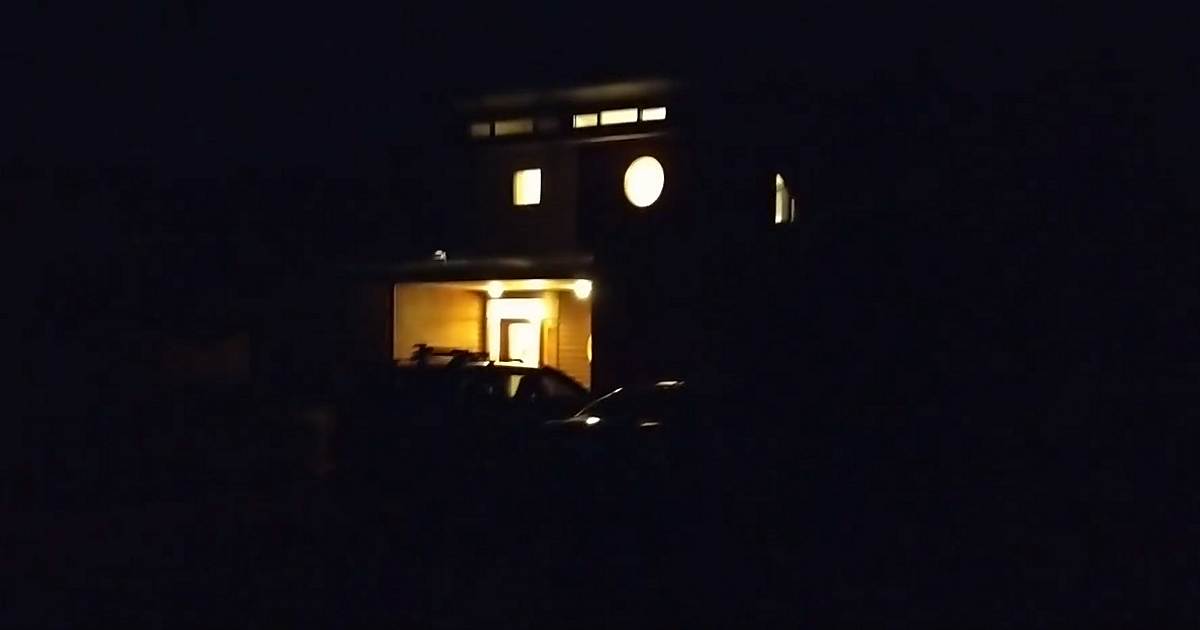
My place as the only beacon of light on a blacked-out street
The reality depends on the specific battery you’re using.
Some, like the Powerwall, will back up your whole house by default. Others can only handle backing up certain nominated circuits.
Some batteries may not even offer any blackout protection.
It’s up to your installer to understand your requirements and offer a suitable system.
My advice? Only backup essentials like lights, fridge, and living room (including internet router). You don’t want a large load (like an oven) tripping your battery on power or draining it of energy and leaving you in the dark.
Why Do Most Batteries Use Lithium-ion?
No other battery chemistry comes close to beating lithium-ion’s performance, size, efficiency, and ease of maintenance while remaining competitive in price.
This is why virtually every battery on the market uses some variant of lithium-ion.
There are 3 major lithium-ion variants in batteries sold in Australia: NMC, LFP and LTO.
LTO has the highest performance, lifespan and safety but is rare and expensive.
NMC and LFP are far more common, with LFP having an edge over NMC regarding safety – albeit marginal, as all batteries sold in Australia have to meet high safety standards.
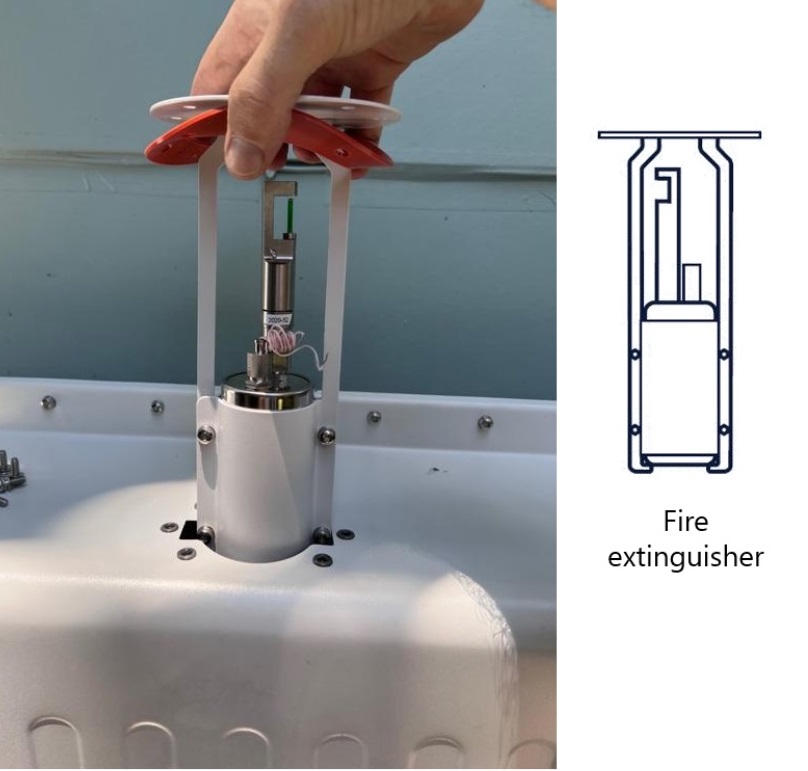
Fun fact – the SolarEdge battery has an optional, built-in fire extinguisher.
My battery comparison table lists the specific chemistry used by each battery.
What Will Batteries Look Like On Your Home?
Batteries look slick in their marketing materials:
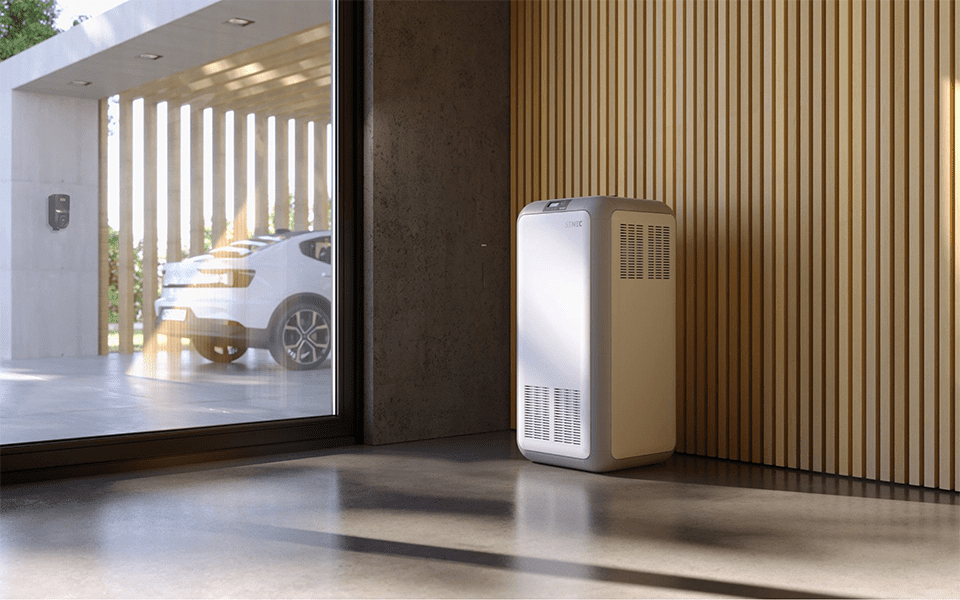
Slick. Futuristic. Location may not be compliant with Australian standards.
But the reality is less sexy – you’ll need isolating switches, power, comms cables, warning stickers and – if in a garage – a bollard.
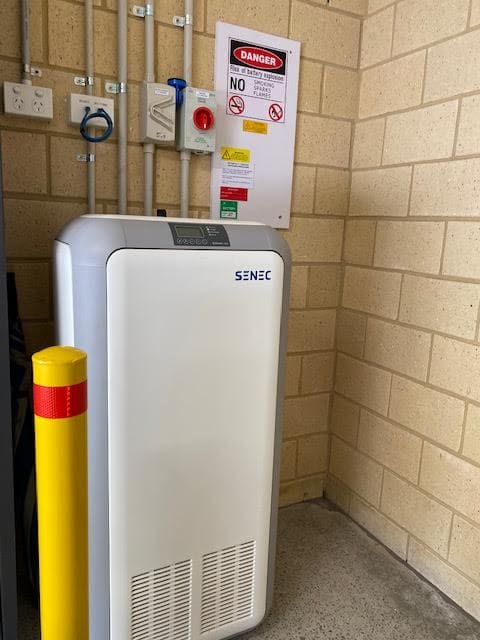
Compliant installations don’t make the best brochure shots.
Dealing With Dodgy Battery Salespeople
My advice here is simple:
- Don’t buy a battery (or anything, really) from doorknocking salespeople
- Don’t buy a battery from unsolicited sales letters in the mail

Show him the door!
Buying from either of the above gives you a high chance of ending up with an overpriced, undersized battery that doesn’t fit your needs.
Battery Warranties – What to Watch Out For
The key question is whether your chosen battery manufacturer has an Australian office for warranty support.
Many companies have started to import and sell batteries from overseas.
There’s nothing wrong with this. But how likely is it a small importer will be around over the next 10 years, ready and willing to assist you or your installer with any issues?
The Next Step
If you are hungry for even more info about batteries or solar – everything you could ever want to know is on my website. It has everything you need to research batteries, from reviews of solar installers and hardware to payback calculators and tools to help you find a better feed-in tariff.
And when you’re ready to take the next step, I’d be happy to arrange quotes from my network of about 500 vetted solar installers across Australia.
Original Source: https://www.solarquotes.com.au/blog/buying-solar-batteries-2024/

